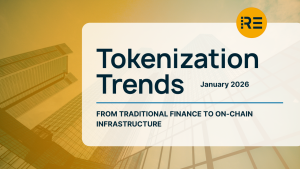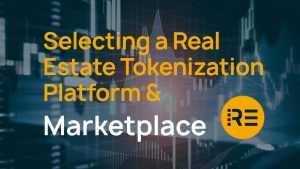Example: Traditional Syndication vs. Tokenization
In a normal real estate syndication, you use an LLC with membership units or shares.
When those membership units or shares are made digital, they become tokens. That’s all tokenization is—making ownership digital.
Misconception #1: Tokenization Is Crypto
Many people think tokenization means crypto. While cryptography is involved, tokenized real estate is not crypto as you usually think about it.
These are securities governed by SEC laws, not meme coins or crypto exchanges.
Misconception #2: Tokenization Creates Instant Liquidity
A common claim is that tokenized real estate is immediately liquid. In reality, liquidity only exists if there is a robust secondary marketplace.
Without a regulated place for investors to trade tokens, liquidity remains limited.
Misconception #3: Tokenization Is Like a REIT or Timeshare
Some people compare tokenized real estate to REITs or even timeshares. That’s not accurate.
-
REITs: You invest in a company that owns real estate, not the property itself.
-
Timeshares: Usually poor investments focused on usage rights, not ownership.
With tokenization, you get direct ownership of real estate (or a portfolio), with cash flow, equity gains, and tax benefits.
Misconception #4: Only Accredited Investors Can Participate
It’s often believed that only accredited investors can buy tokenized real estate.
In reality, it depends on the offering exemption, not the investor.
-
Example: Regulation D 506(c) offerings are limited to accredited investors.
-
However, after a 12-month lockup under Rule 144, tokens can be resold to non-accredited investors on a compliant secondary marketplace.
Compliance Can Be Programmed Into Tokens
Because these are securities, they must follow existing SEC rules.
The good news: compliance features like lockup periods and investor qualifications can be coded directly into the tokens themselves.
Added Benefits for Investors
Tokens can include perks beyond financial returns.
Example: A hospitality project might give token holders free nights at the property—programmed directly into the ownership token.
Misconception #5: Investors Get a Vote (Like a DAO)
Another worry is that tokenization gives every investor voting power over operations.
In reality, most tokenized investments remain passive.
Investors are limited partners, while professional operators make the business decisions.
Misconception #6: Any Tokenized Property Can Be Listed for Trading
Not every tokenized asset can instantly appear on a trading platform.
A true secondary marketplace must be:
-
SEC-regulated
-
Run by a licensed digital broker-dealer
-
Responsible for due diligence and investor protections




